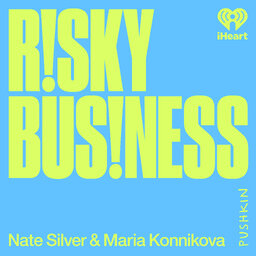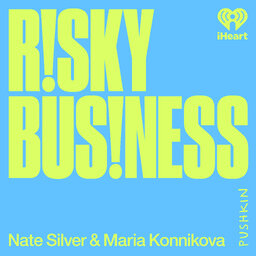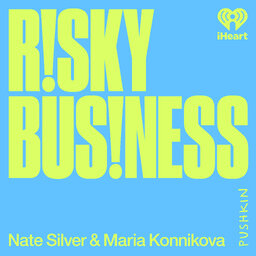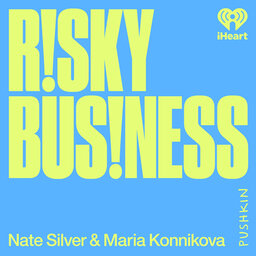Maria sits down with the great Brian Koppelman (Rounders, Billions, The Bear) to learn about how he navigates risk in Hollywood and beyond. They discuss his methods of determining when a risk is worth taking, how to offset risk with hard work, and the time he bet big on Billions.
For more from Nate and Maria, subscribe to their newsletters:
The Leap from Maria Konnikova
Silver Bulletin from Nate Silver
In 1 playlist(s)
Risky Business with Nate Silver and Maria Konnikova
Risky Business is a weekly podcast about making better decisions. The hosts, Maria Konnikova and Nat…Social links
Follow podcast
Recent clips

Nate and Maria’s 2026 Predictions
37:18

Best of Risky Business: Life After Poker (with Vanessa Selbst)
42:44

Why Are Some Countries Happier Than Others?
39:18
 Risky Business with Nate Silver and Maria Konnikova
Risky Business with Nate Silver and Maria Konnikova